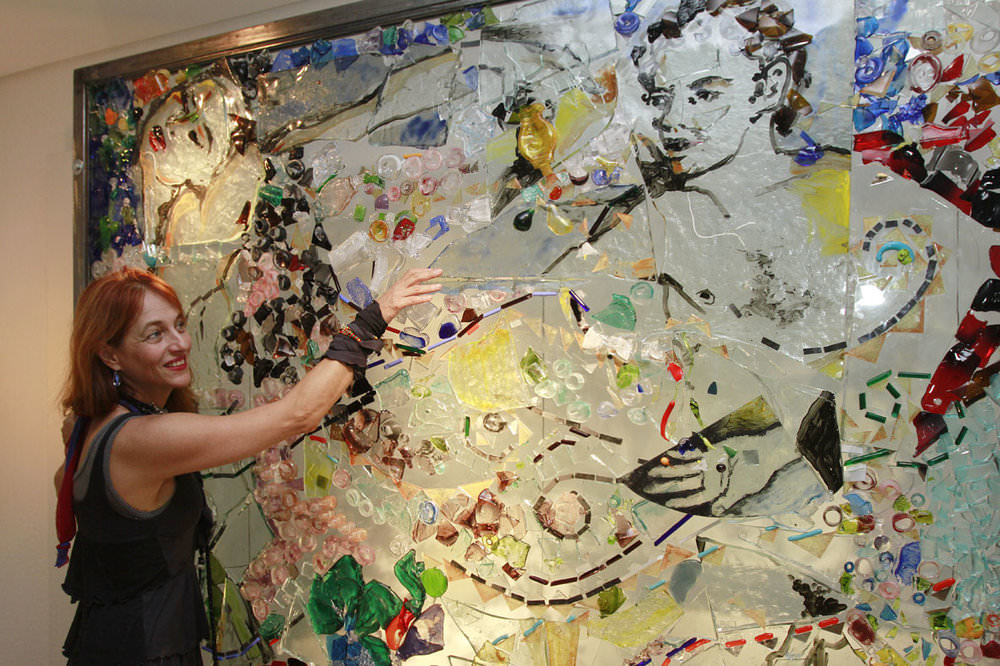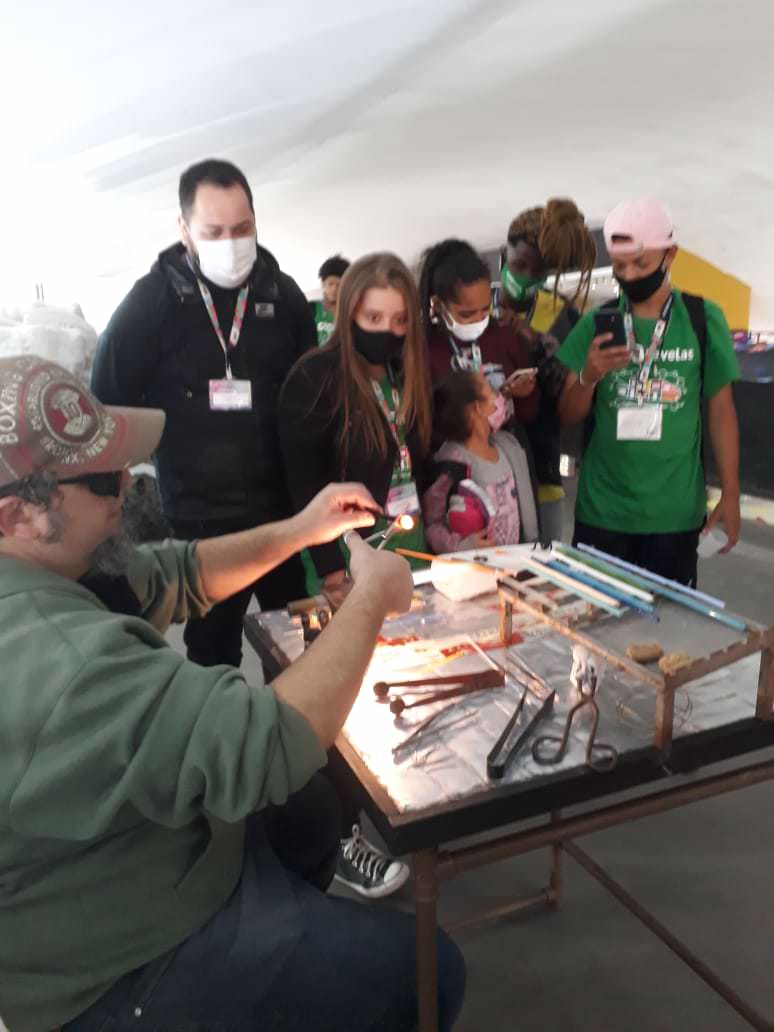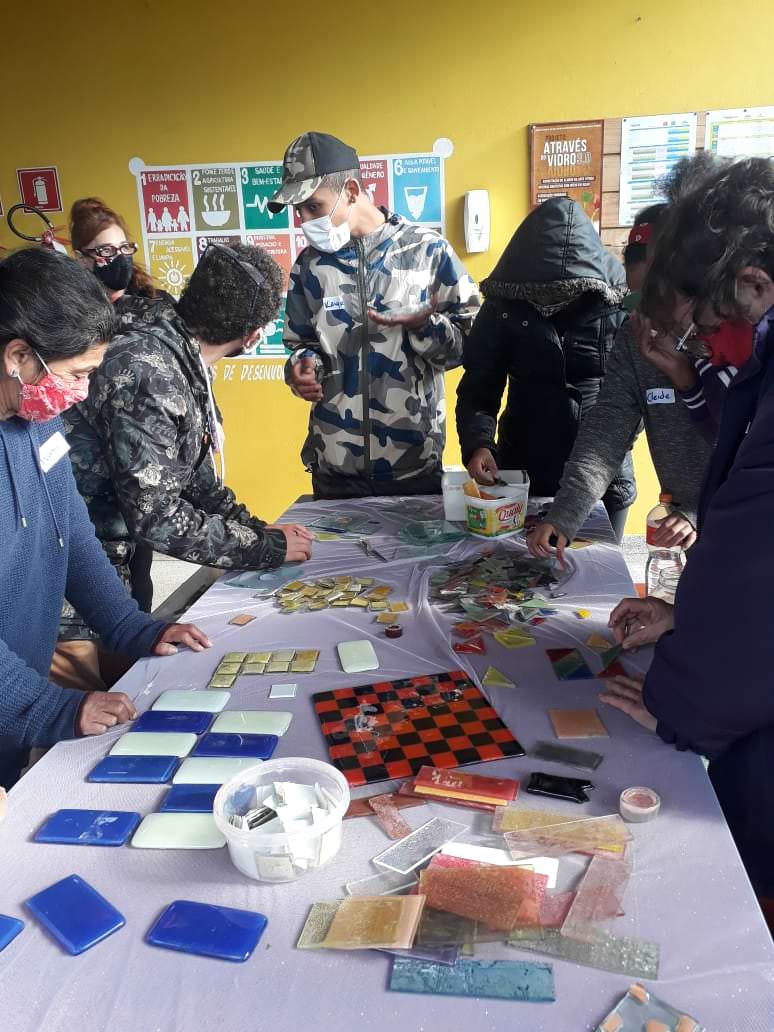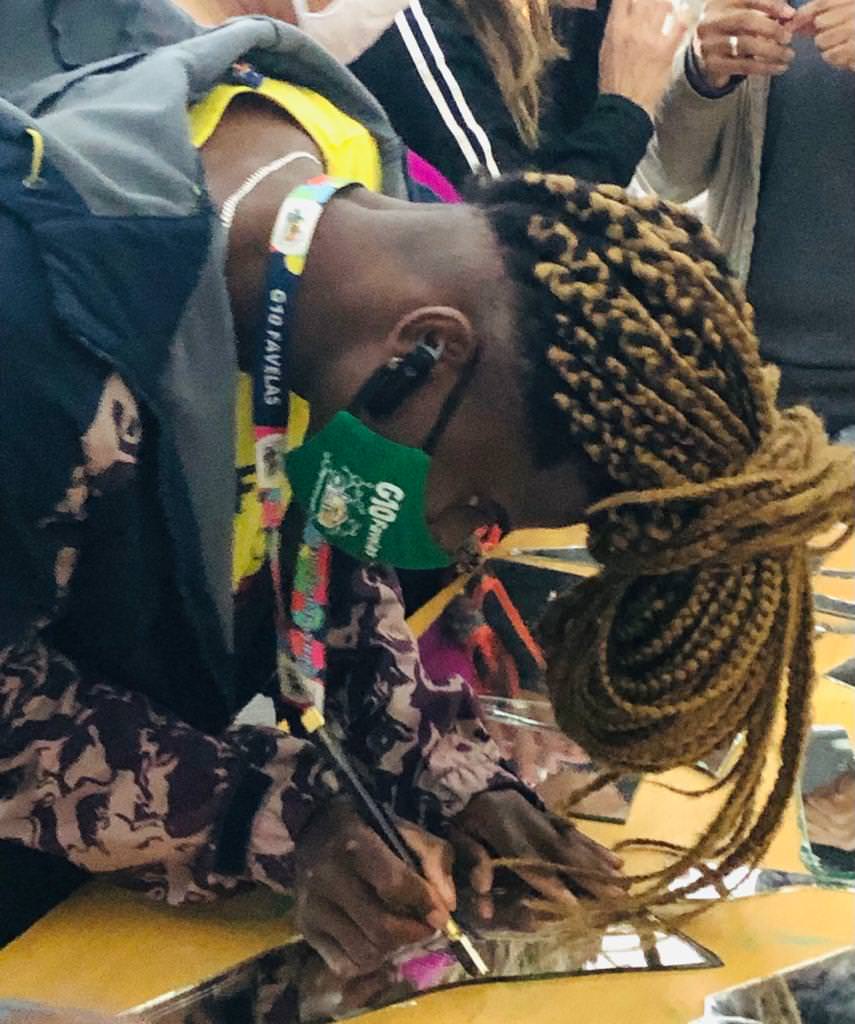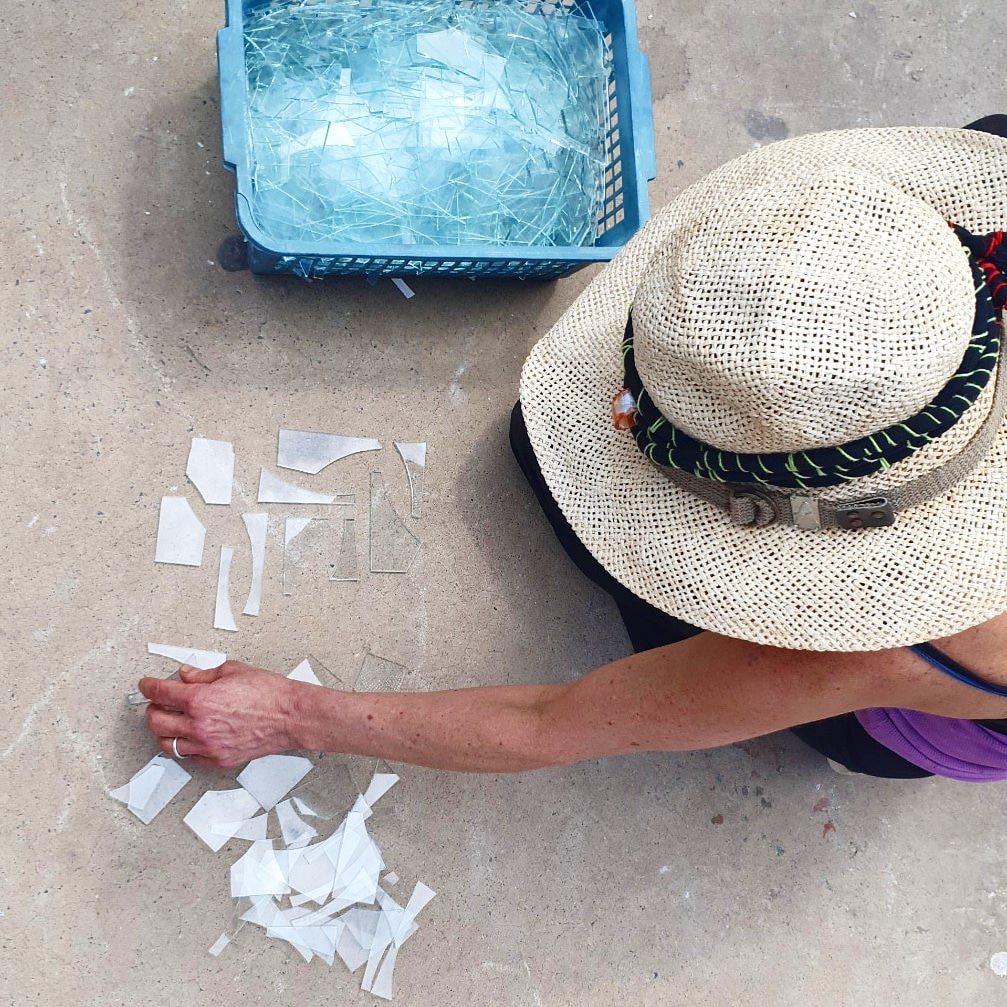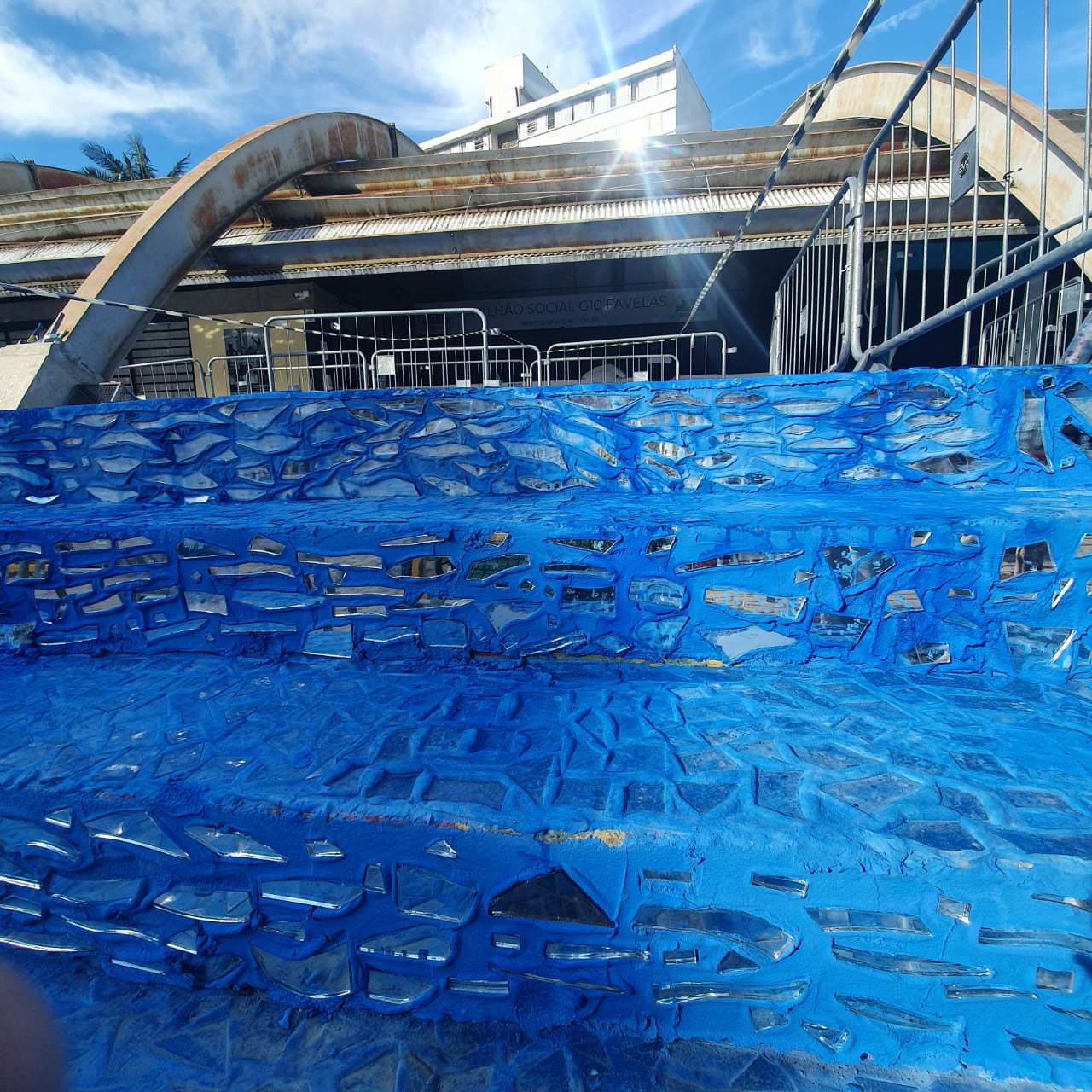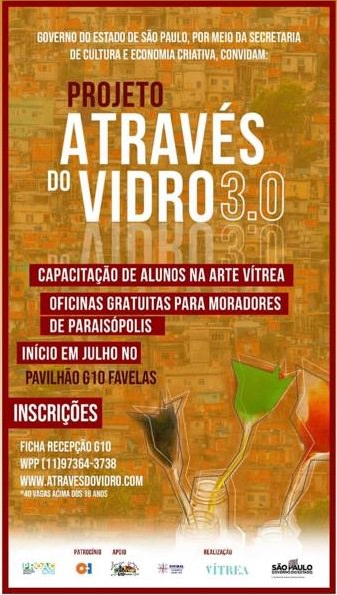In its 3rd edition, the project conceived by artist Débora Muszkat should benefit more from 80 people in Paraisópolis and Palheiros and alleviate the economic crisis of the pandemic
According to the dictionary, garbage is all that worthless or useful, anything that is thrown away. So that now, for artist Débora Muszkat, this is not a very suitable concept for all types of discarded glass or that, momentarily lost its usefulness. Throughout its history, the artist and art educator, chose glass as the main subject of work and research and, applied this to the project "Through the Glass" which reaches its third edition this year.
The project is the result of the artist's passion for glass art, associated with recycling, another theme that moves your work: all his works are made with domestic and industrial waste glass. And it is through upcycling - a technique that proposes the reuse of old or discarded objects, to create new products, using creativity and respect for the environment. For the artist, this is one of the most important points: the constant resignification of solid waste through art and sustainability.
All this special look on glass began to be shared by Débora this July, with educational workshops in Palheiros and Paraisópolis. The classes and workshops of the “Through glass” project continue until the month of October. “One of the highlights of this edition of “Through Glass” is the donation of two ovens to the community of Paraisópolis, in São Paulo. With this, participants will be able to use, after training, the technique acquired from glass art as work and source of income, producing and selling their products", celebrates Deborah.
Participants, throughout the project, will learn to develop processes for the creation and production of artistic objects, do design, and architecture, through workshops with cold glass handling techniques, high and low temperatures. With the professionalization of the participants, the perspective is that each participant, with the help of G10 Favelas, created by Gilson Rodrigues, enter this job market, in which the artist has been inserted since the years 2000. "The glass is everywhere in a sharp state, fouling nature and disturbing people, they receive, on average, 15 cents per kilogram of ground glass, and they often do it out of need to clean the space", justifies. This will be the first investment with the G10 favelas in the market. It is worth noting that the G10 is an organization that takes entrepreneurship to 10 biggest slums in Brazil, and, with this project, and with Deborah, will launch this unique and innovative product on the market. "We want to fulfill the mission of democratizing knowledge of glass art, promoting values and expanding the production chain. And, through teaching, create reflections of a sustainable society through a material, whose value became non-existent, since there is no conscious distribution and that it can give the destiny that honors what nature freely offers us, complete Deborah.
The “Through Glass” was made possible by the State Law of Incentive to Culture – ProAc SP (São Paulo Cultural Action Program), sponsored by O-I Illinois (Owens Illinos), and support from G10-Favelas and Divinal Vidros. To participate in the “Through Glass” project and its workshops, it is necessary to register through the website www.atravesdovidro.com.
Sign up to receive Event News
and the Universe of Arts first!
catwalk – in april of this year, in an initial project action, the artist Debora Muszkat and Gilson Rodrigues, president of the G10 Favelas, put into practice the idea of transforming the favela into a tourist space, removing glass from nature and turning it into sustainability. The initiative is based on Parque Guell, Barcelona, in Spain, conceived by Antoni Gaudí, through ceramic mosaics, and the island of Murano, Italy. For this, covered an area of 600m2 with glass that would be discarded as "trash", transforming the catwalk into a true sky on the ground of Paraisópolis.
About Deborah Muszkat- Débora is a Multimedia Artist: designer, painter, makes use of photography, video and, since 1984, appropriated glass recycling as one of the means of his artistic expression. to Debora, art and sustainability are inseparable processes. And it is the importance of this reflection that she draws attention to in her works. Has already held exhibitions in several countries, like england, Holland, Germany and Italy, where he won an award at the Bienal de Firenze, and in Denmark, where do you divide, currently, housing with Brazil.
In this trajectory, Débora discovered the possibility of extracting pigments from broken mirrors. You know that story that breaking mirrors gives seven years of bad luck? Because the artist transformed this and through the use of special ovens developed a technique to extract metallic pigments from white to magenta, forming colors from silver to various shades of gold.

